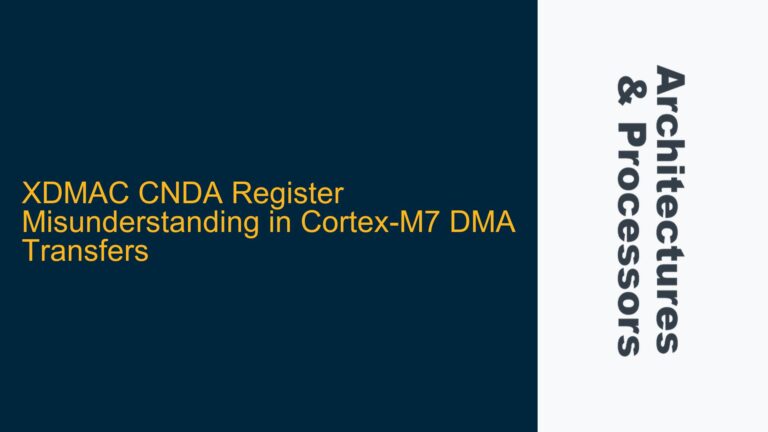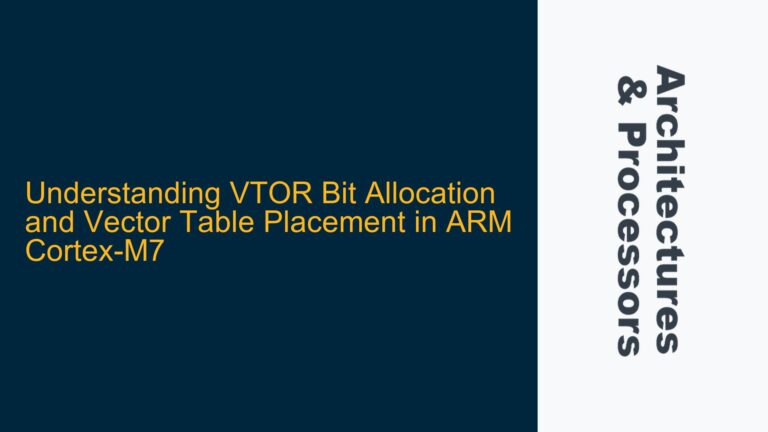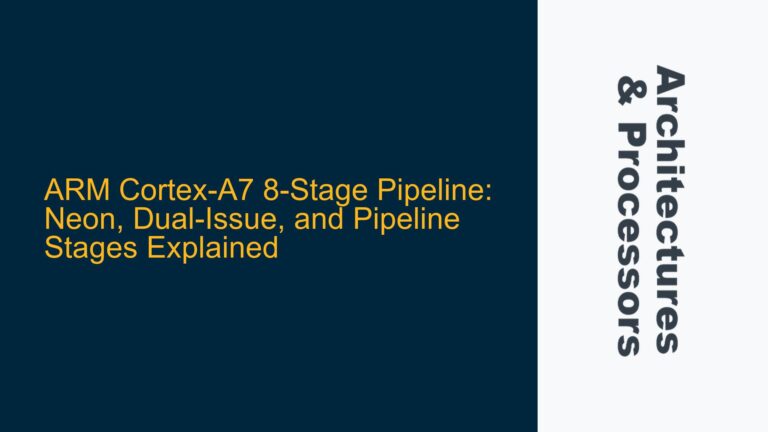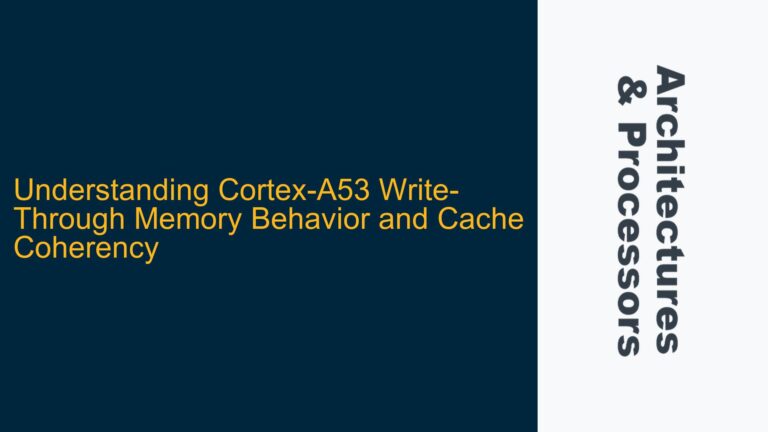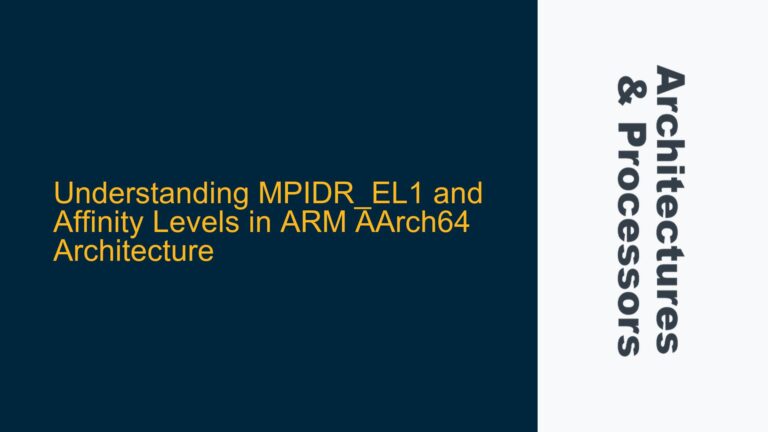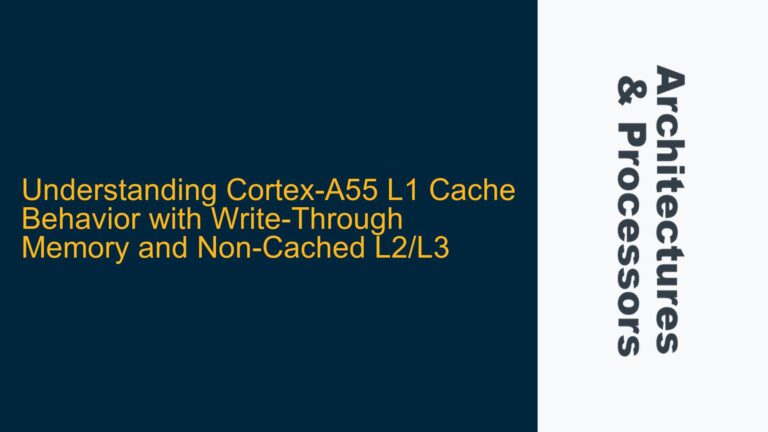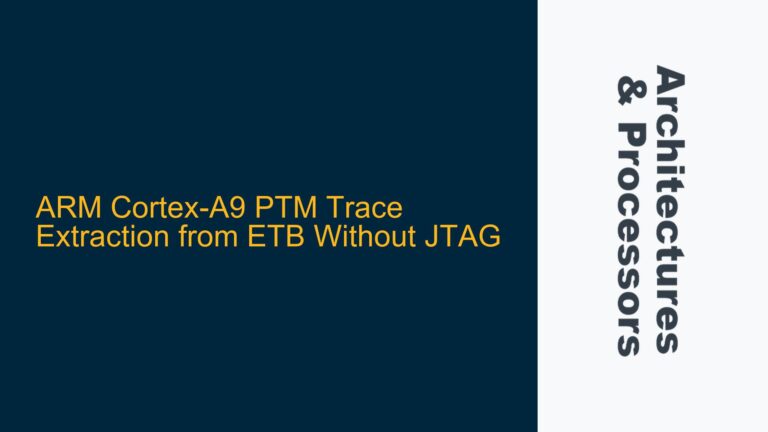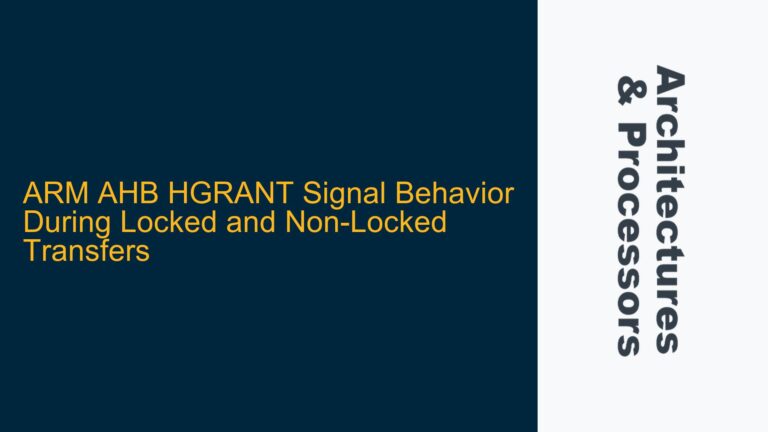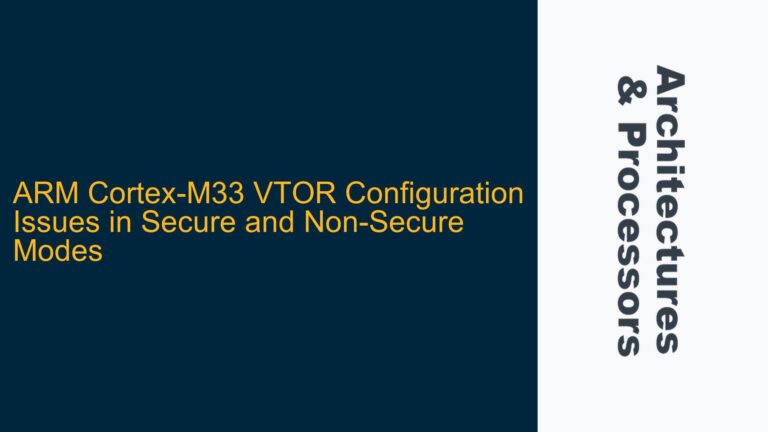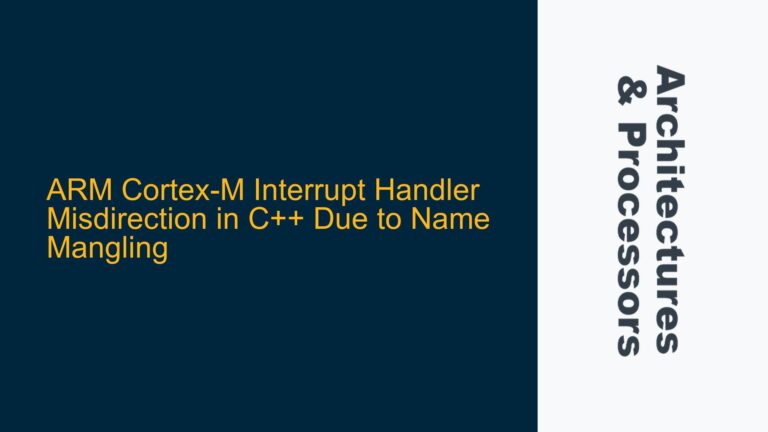XDMAC CNDA Register Misunderstanding in Cortex-M7 DMA Transfers
XDMAC CNDA Register Behavior During DMA Completion Interrupts The XDMAC (Extended Direct Memory Access Controller) is a peripheral commonly found in ARM Cortex-M7 microcontrollers, particularly those from Microchip (formerly Atmel). It is used to manage high-speed data transfers between memory and peripherals without CPU intervention. One of the critical registers in the XDMAC is the…
